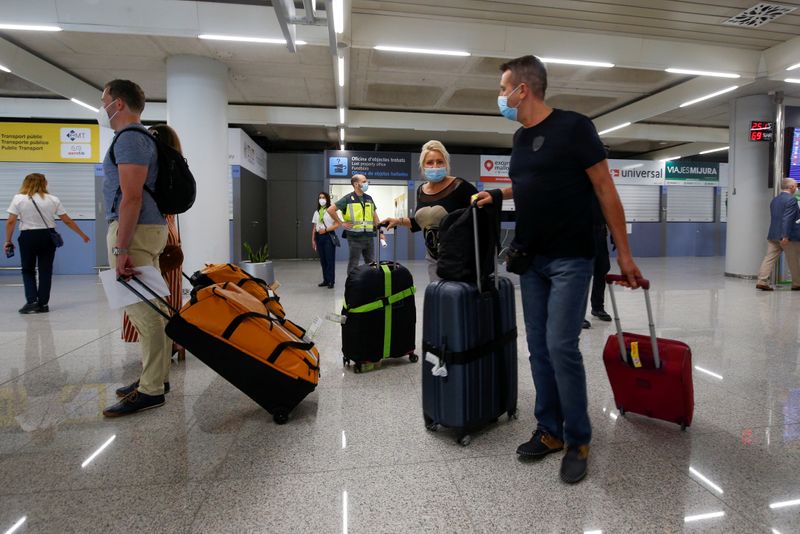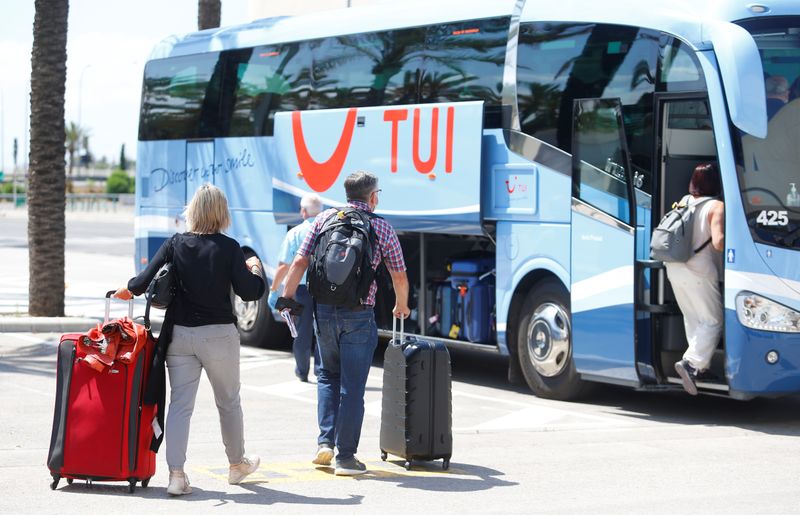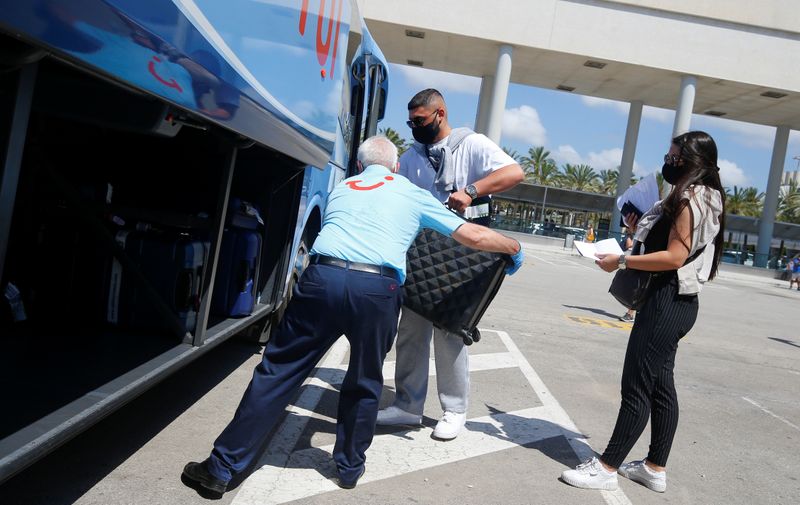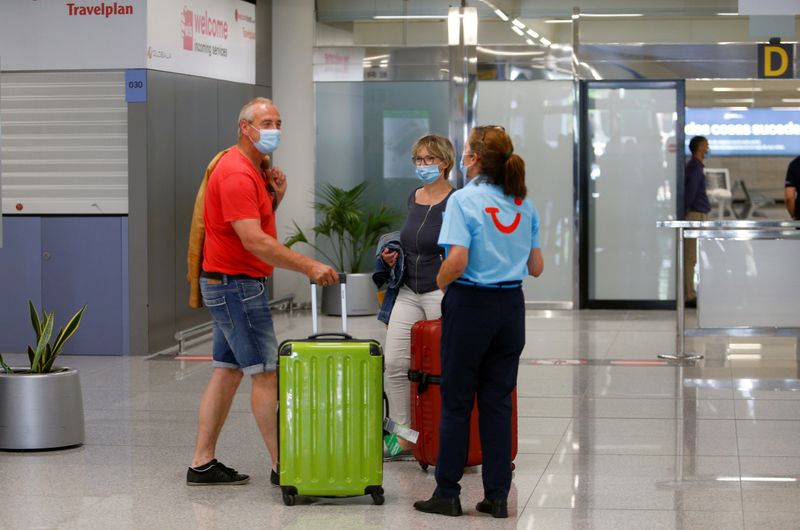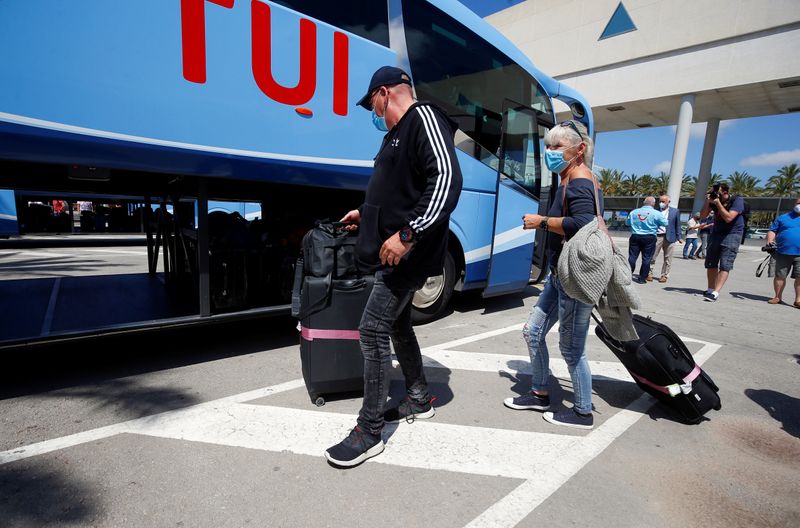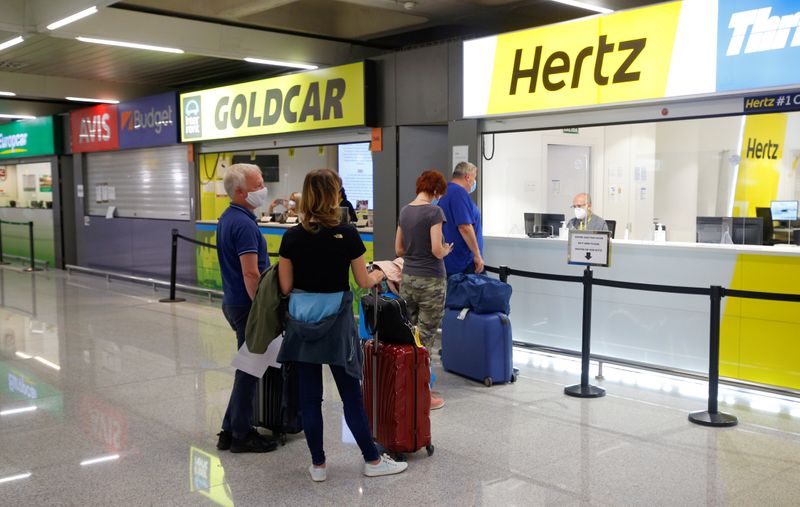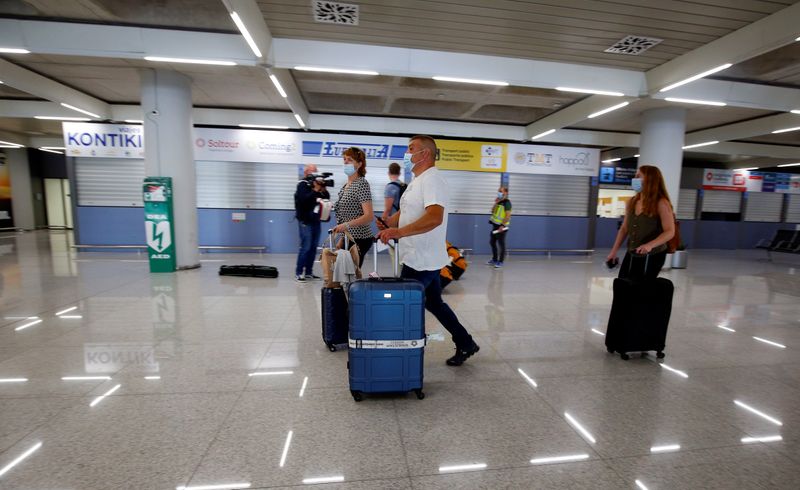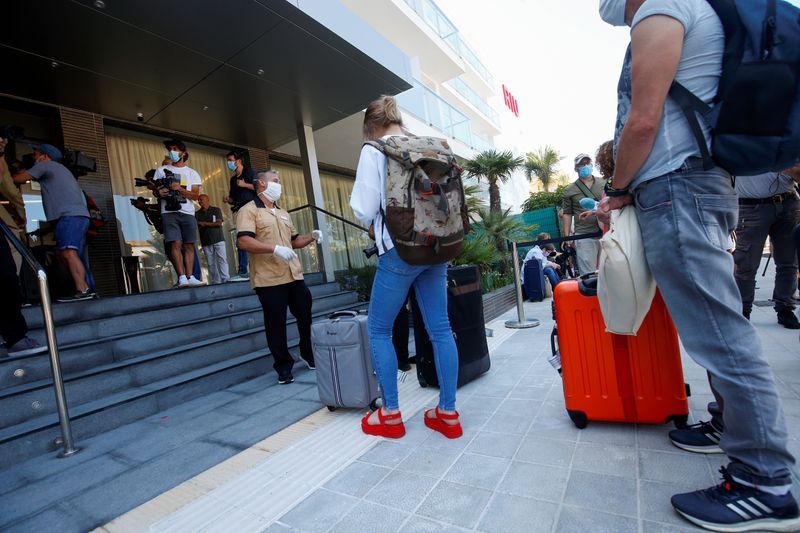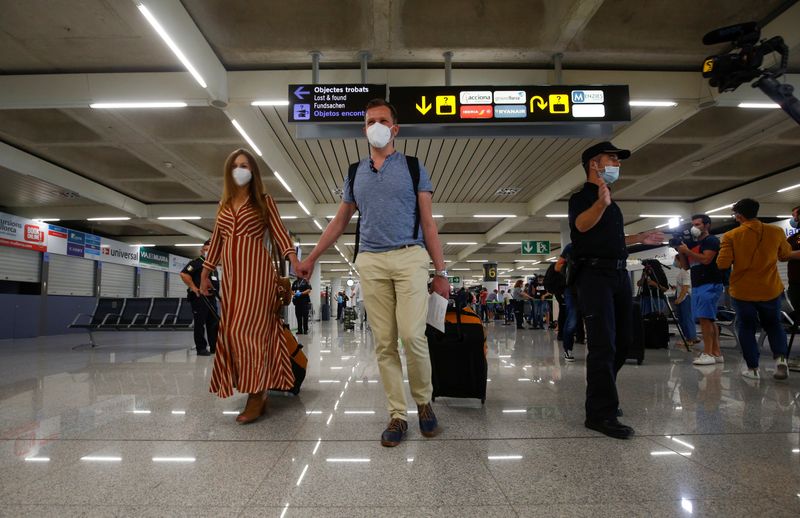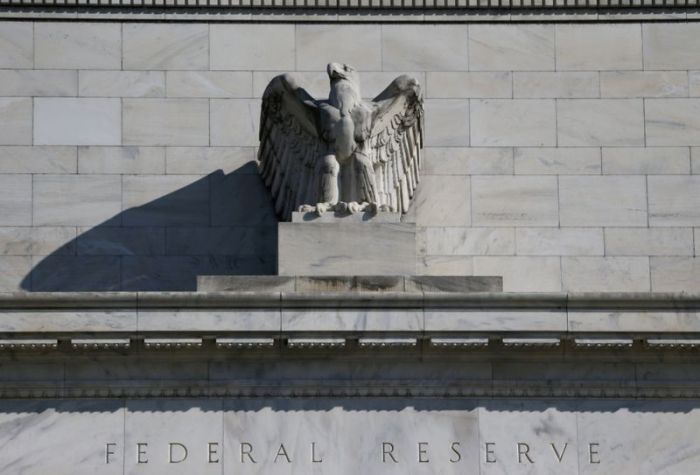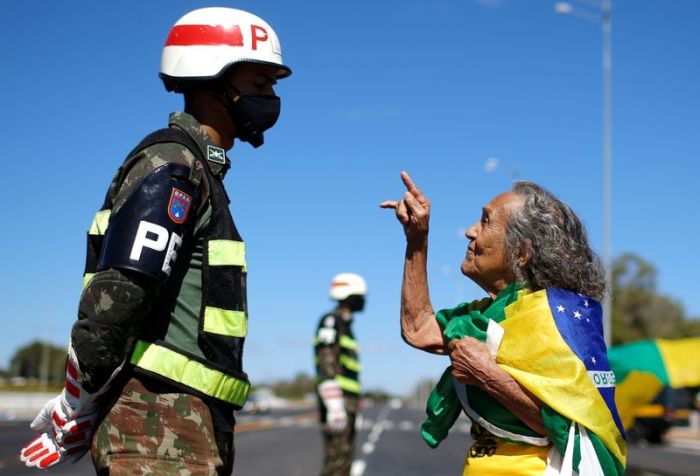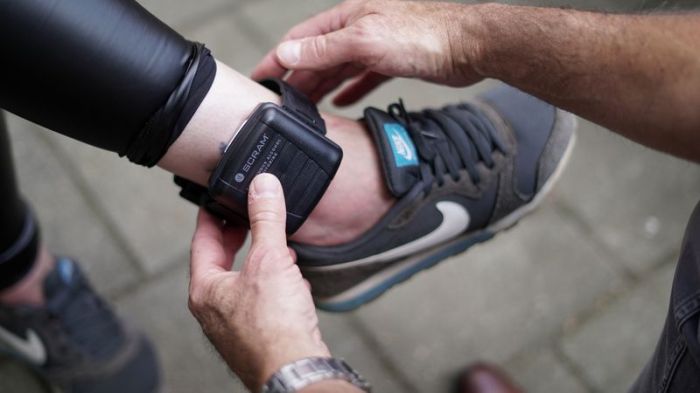PALMA DE MALLORCA, Spain (Reuters) – Hundreds of sunseekers from Germany landed on the Spanish island of Mallorca on Monday, the first tourists allowed into the country since borders were shut in March to tackle the coronavirus pandemic.
More than 1,500 German holidaymakers are expected in the Balearic Islands as part of a pilot project that will open a chink in a sector that accounts for 12% of Spain’s economy, before restrictions are loosened next week.
Visitors’ temperatures were taken at the airport and regional leader Francina Armengol said they must follow health and safety rules.
“This virus is still infecting, still killing people all around the world, so until there is a vaccine our best way to be safe is a mask, keeping our distance, and washing our hands,” she told a news conference.
Installed by a hotel pool and free of the mask the group wore in transit, tourist Marcel Leifholz said, “It is easier to switch off here, the weather isn’t as changeable as in Germany.”
Hotels on the Mediterranean islands are limited to 50% occupancy and will have infra-red cameras to measure body temperatures.
The scheme was authorised to host as many as 10,900 through July 1, but will end up covering around 1,500 exclusively after the government decided to reopen to most European visitors from June 21, when other tourism should start up alongside the pilot.
Another pilot flight arrived in Mallorca later on Monday, airport operator Aena said.
One of the world’s most popular tourist destinations, Spain is now due to start letting in visitors from outside Europe from July 1.
European nations eased border controls on Monday following a broad decline in the number of coronavirus cases, but pre-crisis travel levels are a way off.
Last year, Germans made up one third of international tourists to the Balearic Islands, an archipelago off Spain’s east coast that includes the party island of Ibiza.
Spain’s virus lockdown caught Mallorca as it was gearing up for summer and has shaved weeks off the tourist season, but senior TUI executive Sebastian Ebel said the island had reason to hope business would be good.
“It’s Germans’ favourite destination – the closeness, the hospitality and the high health standards will encourage people who are still uncertain to come,” Ebel told the news conference.
(Reporting by Erol Dogrudogan and Enrique Calvo in Palma de Mallorca; Additional reporting by Thomas Escritt in Berlin; Writing by Isla Binnie; Editing by Andrei Khalip and Mark Heinrich)

